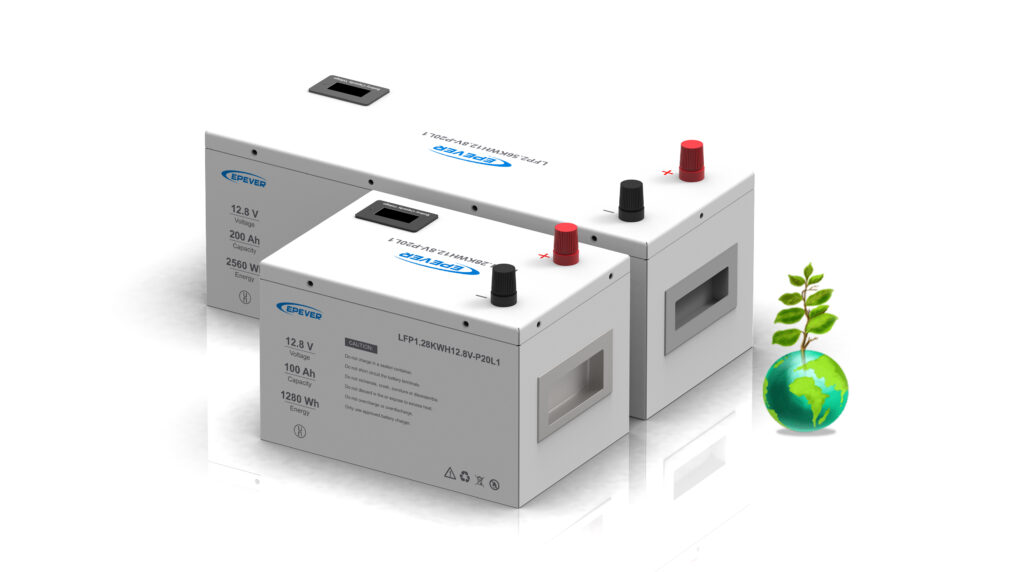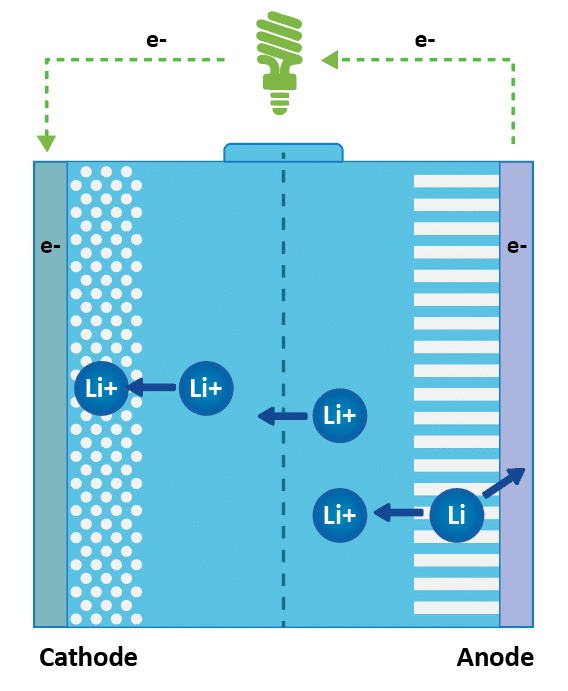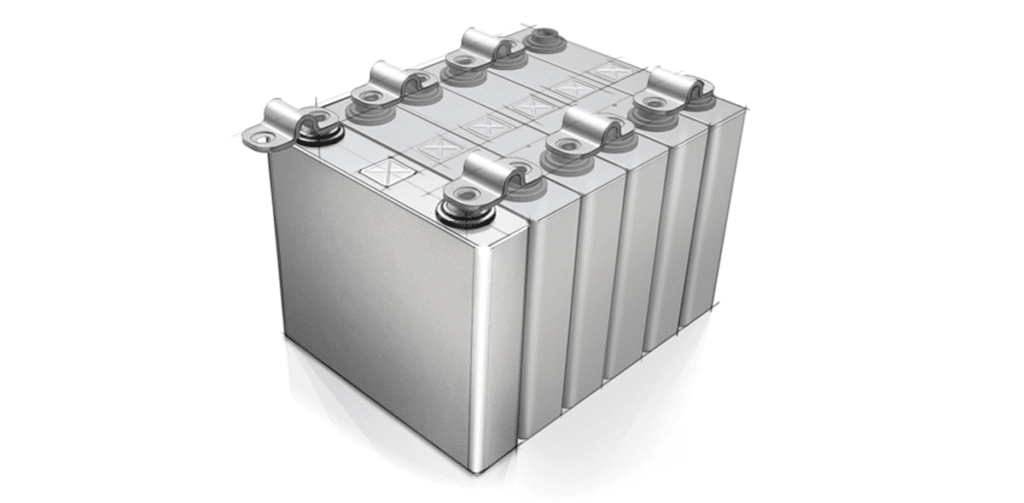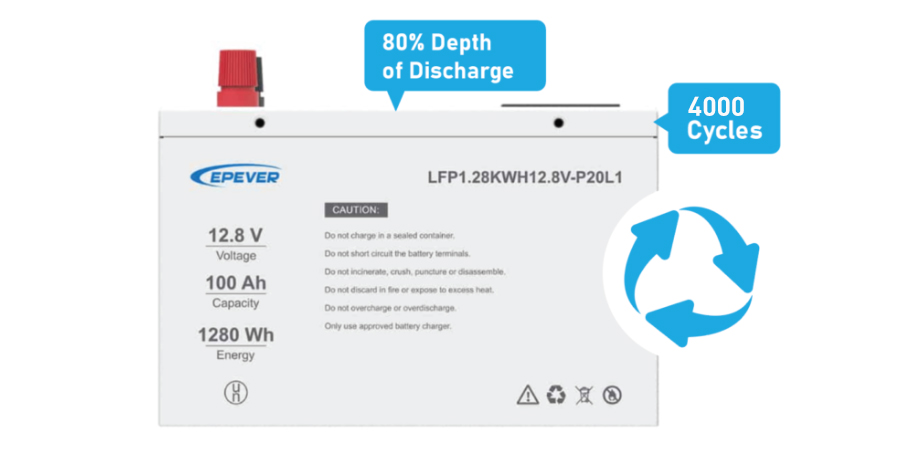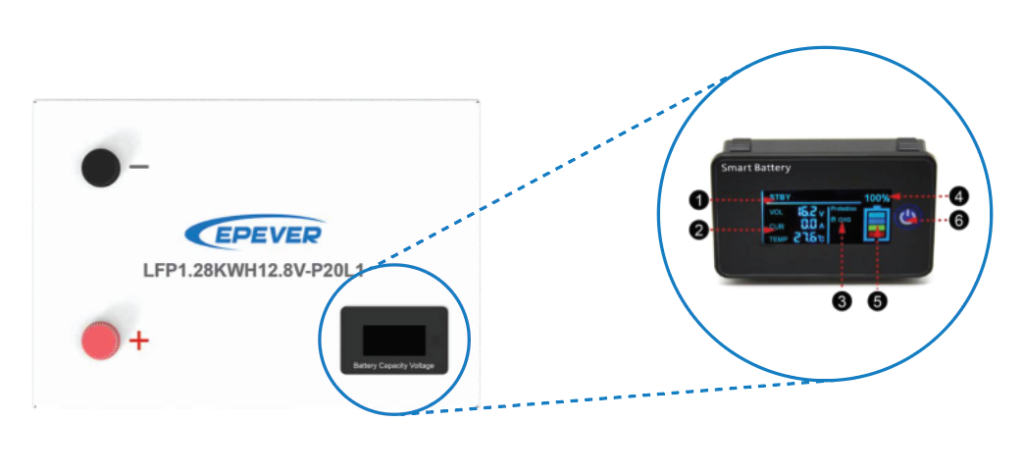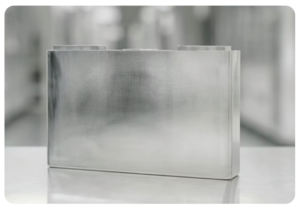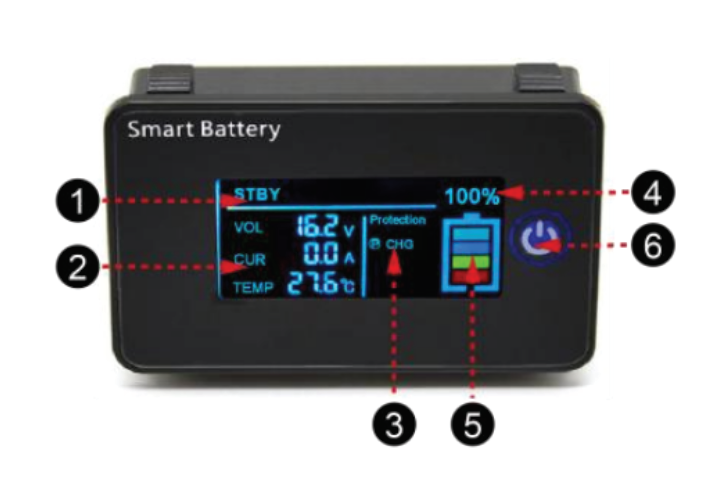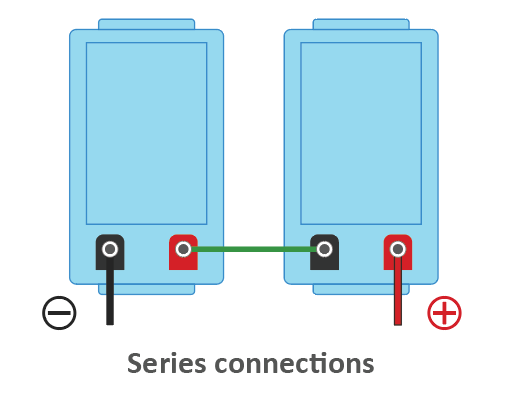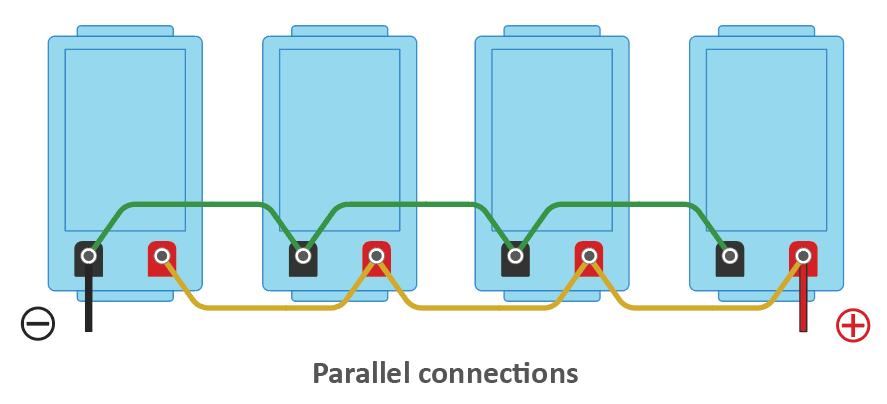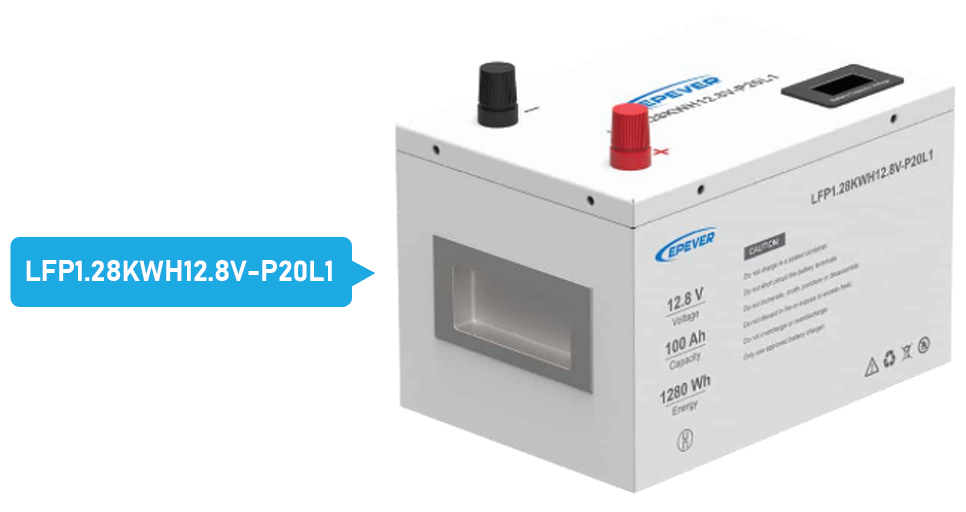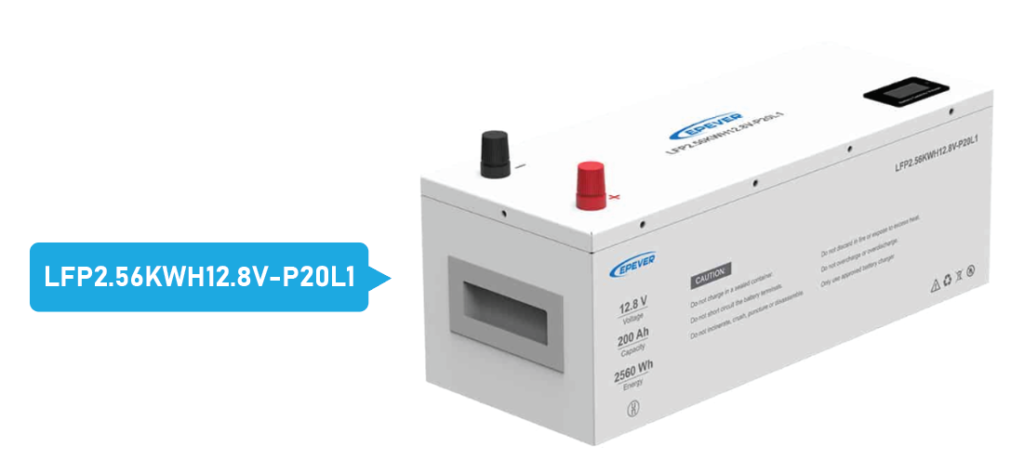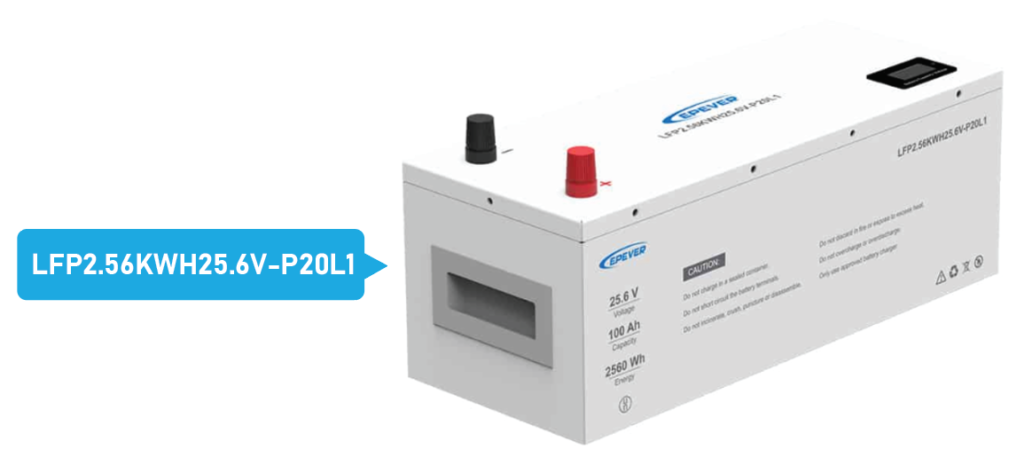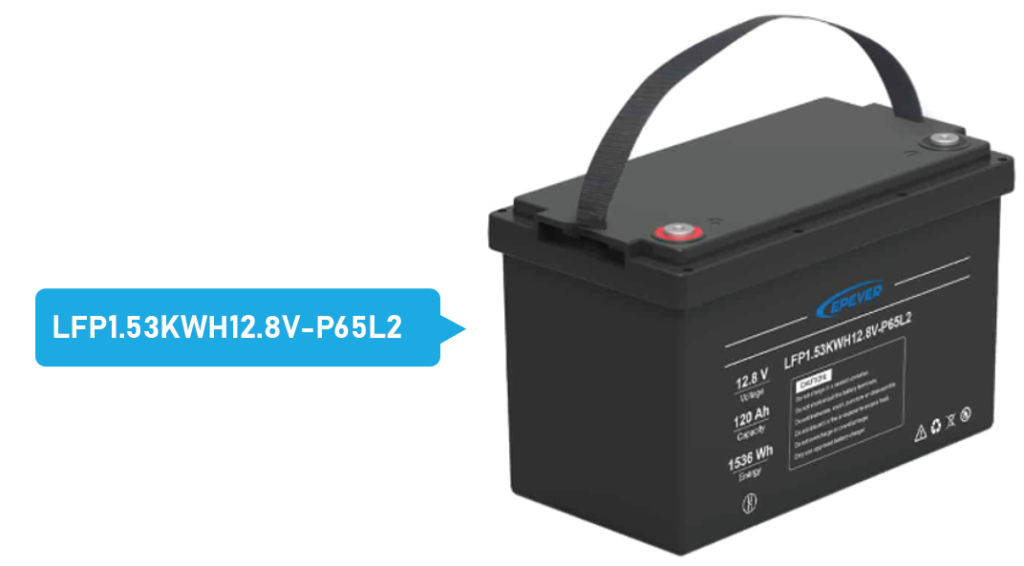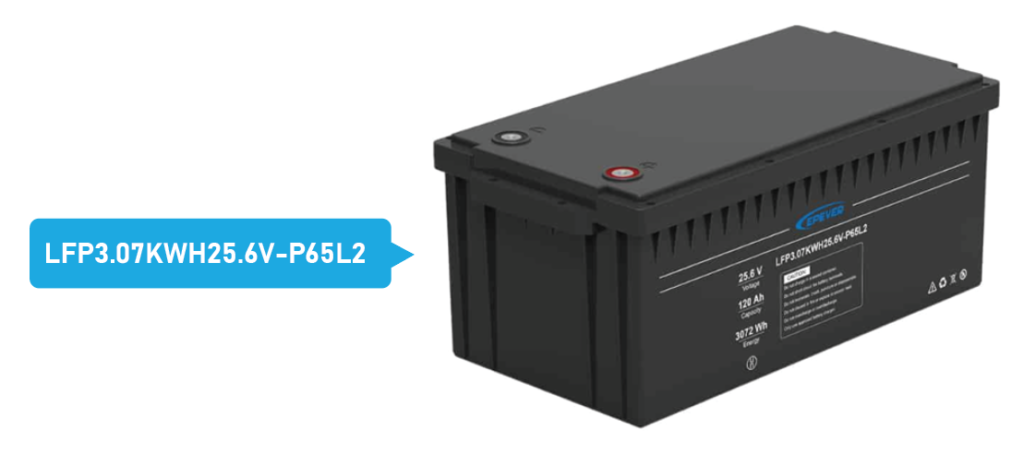Introduction to EPEVER Lithium Batteries
EPEVER stands as a pivotal player in the renewable energy solutions sector, continuously driving innovation to foster a more sustainable and greener world. The introduction of our advanced lithium batteries represents a significant leap forward in energy storage technology. These batteries are not merely advancements in energy capacity and efficiency; they embody a step towards a more eco-friendly future.
EPEVER’s unwavering commitment to clean energy solutions is evident in our development of the LFP series, a clear testament to our dedication to environmental sustainability. The versatility of these batteries is notable, supporting both series and parallel connections, making them suitable for a wide range of energy requirements, from extensive large-scale storage systems to more compact energy solutions.
Cutting-Edge LiFePO4 Technology
At the heart of EPEVER’s lithium batteries lies the advanced LiFePO4 cell technology, celebrated for its exceptional stability and prolonged lifespan. These features form the cornerstone of efficient and durable energy output. The use of A-Grade Prismatic Aluminum Shell Cells in these batteries brings several distinctive advantages to the forefront:
- Stability and Longevity: The aluminum shell enhances thermal conductivity, which plays a crucial role in efficient heat dissipation. This aspect is vital for maintaining optimal performance and prolonging the battery’s lifespan, particularly in high-demand applications.
- Enhanced Heat Dissipation: The prismatic design of the cells contributes effectively to temperature control, ensuring that the battery operates within its ideal temperature range. This is essential for both performance and longevity.
- Efficient Design for Space-Limited Applications: The square shape of these cells makes them particularly easy to stack and install, an advantage in applications where space is limited.
- High Energy Density Packaging: The square design also allows for a more compact arrangement of cells, optimizing energy density and reducing unnecessary space, leading to a more efficient use of space and energy.
Furthermore, these batteries boast an impressive cycle life, exceeding 4000 cycles at an 80% depth of discharge (DOD) under controlled conditions, underscoring their durability and reliability.
The IP65 protection level, along with certifications like UN38.3, MSDS, and IEC62133, further highlight the safety and quality of these products.
EPEVER’s lithium batteries are also engineered for user convenience and minimal maintenance. The straightforward installation process, coupled with the absence of regular maintenance or liquid replenishment requirements, makes these batteries an ideal choice for long-term, cost-effective applications.
The incorporation of an LCD display for real-time monitoring enhances the user experience by providing immediate feedback on vital parameters such as voltage, temperature, and State of Charge (SOC).
These enhancements ensure that EPEVER’s lithium batteries offer not just a more efficient and sustainable energy storage solution, but also align with the broader vision of a greener future.
Technical Innovations in EPEVER’s Lithium Iron Phosphate Batteries
I. Characteristics of Lithium Iron Phosphate (LiFePO4) Batteries
EPEVER’s LiFePO4 batteries are distinguished by their high-grade prismatic aluminum shell cells, each rated at 3.2V and 100Ah. These cells offer a multitude of benefits that enhance the battery’s performance and longevity:
- Stability and Heat Dissipation: The aluminum shell of these cells boasts excellent thermal conductivity, which is crucial for dissipating heat effectively. This feature not only enhances battery performance but also extends its lifespan, especially in high-power applications. The prismatic design further facilitates temperature control, ensuring the battery operates within optimal temperature ranges.
- Efficient Design and Packaging: The square shape of these cells makes them ideal for space-constrained applications, allowing for easier stacking and installation. This design also contributes to higher energy density, effectively utilizing space and minimizing unnecessary gaps.
- Long Cycle Life: Under testing conditions of 25°C and a 0.5C discharge rate, these batteries exhibit an impressive cycle life, exceeding 4000 cycles at an 80% depth of discharge (DOD).
- Certifications and Protection Level: The IP65 protection level signifies the battery’s robustness against dust and ability to operate in humid or dusty environments. These batteries have acquired certifications like UN38.3, MSDS, and IEC62133, ensuring high standards of safety and reliability.
- Ease of Installation and Maintenance: The design and installation process of EPEVER’s batteries is straightforward, requiring no complex procedures. With minimal need for regular checks or maintenance, these batteries are ideal for long-term operation, particularly in residential settings.
II. Advanced Monitoring and Safety Features
- LCD Real-time Display Screen: The integration of an LCD display offers real-time monitoring of critical parameters such as voltage, temperature, and State of Charge (SOC). It also provides alerts and displays data including current voltage, current, temperature, and protection status.
- Intelligent Battery Management System (BMS): The built-in BMS in EPEVER’s batteries ensures safe operation by managing and monitoring battery parameters. It provides a comprehensive suite of six protection functions, including overcharging, overdischarging, and overcurrent protection.
- Flexibility in Connection: These batteries support both series and parallel connections, accommodating up to four battery packs in each configuration. This feature enhances the flexibility and scalability of the power solutions, allowing for increased voltage and total capacity.
Comprehensive Range of Models
EPEVER presents a versatile range of lithium battery models, each meticulously designed to address specific energy needs.
The range includes:
- EPEVER 12.8V 100Ah Lithium Battery (LFP1.28KWH12.8V-P20L1)
- Energy: 1280Wh
- Nominal Voltage/Capacity: 12.8V / 100Ah
- Cycle Life: ≥4000 cycles at 80% DOD
- Protection: Overcharge, over-discharge, temperature extremes, over-current, short-circuit
- Special Features: LCD display, cell balance function, easy installation, maintenance-free
- Max Series Connection: 4 packs
- IP Class: IP20
- Applications: Solar battery backup, home energy storage, camping, RV, marine, emergency use
- EPEVER 12.8V 200Ah Lithium Battery (LFP2.56KWH12.8V-P20L1)
- Energy: 2560Wh
- Nominal Voltage/Capacity: 12.8V / 200Ah
- Cycle Life: ≥4000 cycles at 80% DOD
- Protection: Overcharge, over-discharge, temperature extremes, over-current, short-circuit
- Special Features: LCD display, cell balance function, metal case for heat dissipation
- Max Series Connection: 4 packs
- IP Class: IP20
- Applications: Solar battery banks, residential setups, RVs, camping, marine applications
- EPEVER 25.6V 100Ah Lithium Battery (LFP2.56KWH25.6V-P20L1)
- Energy: 2560Wh
- Nominal Voltage/Capacity: 25.6V / 100Ah
- Cycle Life: ≥4000 cycles at 80% DOD
- Protection: Overcharge, over-discharge, temperature extremes, over-current, short-circuit
- Special Features: Cell balance function, easy installation, maintenance-free, metal case for heat dissipation
- Max Series Connection: 2 packs
- IP Class: IP20
- Applications: Diverse energy needs including solar panel battery banks, residential backups, RV, camping
- EPEVER 48V 100Ah Lithium Battery (LFP4.8KWH48V-P20R1)
- Energy: 4800Wh
- Nominal Voltage/Capacity: 48V / 100Ah
- Cycle Life: ≥4000 cycles at 80% DOD
- Protection: Overcharge, over-discharge, temperature extremes, over-current, short-circuit
- Special Features: RS485 CAN, RS232 communication, Cell balance function
- Max Parallel Connection: 8 packs
- IP Class: IP20
- Applications: Scalable energy solutions, solar battery banks, home and residential backups
- EPEVER 51.2V 100Ah Lithium Battery (LFP5.12KWH51.2V-P20R1)
- Energy: 5120Wh
- Nominal Voltage/Capacity: 51.2V / 100Ah
- Cycle Life: ≥4000 cycles at 80% DOD
- Protection: Overcharge, over-discharge, temperature extremes, over-current, short-circuit
- Special Features: LED display, RS485 CAN, RS232 communication
- Max Parallel Connection: 8 packs
- IP Class: IP20
- Applications: Solar panel battery banks, home backups, RVs, camping, marine, emergency systems
- EPEVER 12.8V 120Ah Lithium Battery (LFP1.53KWH12.8V-P65L2)
- Energy: 1536Wh
- Nominal Voltage/Capacity: 12.8V / 120Ah
- Cycle Life: ≥4000 cycles at 80% DOD
- Protection: Overcharge, over-discharge, temperature extremes, over-current, short-circuit
- Special Features: Cell balance function, easy installation, maintenance-free
- Max Series Connection: 4 packs
- IP Class: IP65
- Applications: Diverse energy needs including solar panel battery banks, residential backups, RV, camping
- EPEVER 25.6V 120Ah Lithium Battery (LFP3.07KWH25.6V-P65L2)
- Energy: 3072Wh
- Nominal Voltage/Capacity: 25.6V / 120Ah
- Cycle Life: ≥4000 cycles at 80% DOD
- Protection: Overcharge, over-discharge, temperature extremes, over-current, short-circuit
- Special Features: Cell balance function, easy installation, maintenance-free
- Max Series Connection: 2 packs
- IP Class: IP65
- Applications: Solar battery storage, home backup systems, residential solar applications, RVs, camping, marine
Each model in this series features A-grade prismatic LiFePO4 cells, ensuring longevity and performance. The integration of LCD or LED displays for real-time monitoring, coupled with comprehensive safety features like overcharge and temperature protection, reflects EPEVER’s focus on user convenience and safety. The varying IP classes across the models indicate their suitability for different environmental conditions, enhancing their application flexibility.
Technical Innovations in EPEVER’s Lithium Iron Phosphate Batteries
I. Characteristics of Lithium Iron Phosphate (LiFePO4) Batteries
EPEVER’s LiFePO4 batteries are distinguished by their high-grade prismatic aluminum shell cells, each rated at 3.2V and 100Ah. These cells offer a multitude of benefits that enhance the battery’s performance and longevity:
- Stability and Heat Dissipation: The aluminum shell of these cells boasts excellent thermal conductivity, which is crucial for dissipating heat effectively. This feature not only enhances battery performance but also extends its lifespan, especially in high-power applications. The prismatic design further facilitates temperature control, ensuring the battery operates within optimal temperature ranges.
- Efficient Design and Packaging: The square shape of these cells makes them ideal for space-constrained applications, allowing for easier stacking and installation. This design also contributes to higher energy density, effectively utilizing space and minimizing unnecessary gaps.
- Long Cycle Life: Under testing conditions of 25°C and a 0.5C discharge rate, these batteries exhibit an impressive cycle life, exceeding 4000 cycles at an 80% depth of discharge (DOD).
- Certifications and Protection Level: The IP65 protection level signifies the battery’s robustness against dust and ability to operate in humid or dusty environments. These batteries have acquired certifications like UN38.3, MSDS, and IEC62133, ensuring high standards of safety and reliability.
- Ease of Installation and Maintenance: The design and installation process of EPEVER’s batteries is straightforward, requiring no complex procedures. With minimal need for regular checks or maintenance, these batteries are ideal for long-term operation, particularly in residential settings.
II. Advanced Monitoring and Safety Features
- LCD Real-time Display Screen: The integration of an LCD display offers real-time monitoring of critical parameters such as voltage, temperature, and State of Charge (SOC). It also provides alerts and displays data including current voltage, current, temperature, and protection status.
- Intelligent Battery Management System (BMS): The built-in BMS in EPEVER’s batteries ensures safe operation by managing and monitoring battery parameters. It provides a comprehensive suite of six protection functions, including overcharging, overdischarging, and overcurrent protection.
- Flexibility in Connection: These batteries support both series and parallel connections, accommodating up to four battery packs in each configuration. This feature enhances the flexibility and scalability of the power solutions, allowing for increased voltage and total capacity.
The Manufacturing Excellence Behind EPEVER’s Energy Storage Batteries
Production Process of Energy Storage Batteries
- Cell Sorting: In the initial phase of production, meticulous attention is paid to sorting and grading individual cells. This crucial step ensures the elimination of any defective cells, setting a high standard of quality right from the beginning.
- Module Stacking: The next stage involves strategically stacking the modules. This process not only significantly increases the battery pack’s voltage and capacity but also optimizes its energy density, ensuring maximum efficiency and performance.
- Total Voltage and Internal Resistance Testing with BMS Assembly: A key aspect of the production process is the comprehensive testing of total voltage and internal resistance. This evaluation is essential to assess the overall performance of the battery pack. The integration of a Battery Management System (BMS) during this phase guarantees the stability and safety of the final product.
- Battery Pack Testing: Once assembled, each battery pack undergoes rigorous testing to validate its performance. This includes aging tests to assess longevity, insulation resistance tests for safety, and a series of comprehensive product tests to ensure reliability and quality.
- Battery Performance Matching: The process of cell sorting is vital in aligning the performance parameters of each cell, such as voltage, capacity, and internal resistance. By ensuring that each cell within a battery pack shares similar characteristics, we achieve a harmonious balance in performance, thus avoiding issues related to uneven charging and discharging.
- Lifespan Optimization: Sorting cells based on their lifespan and cycling characteristics is fundamental in extending the overall lifespan of the battery pack. Grouping cells with comparable aging rates mitigates the variance in performance over time.
- Safety Management: By sorting cells, we significantly reduce safety risks that may arise from performance differences. This careful grouping minimizes potential issues like overcharge and overdischarge, enhancing the safety of the battery system.
- Improved Efficiency: The efficiency of a battery pack is greatly enhanced through cell sorting. By matching cells with similar performance, internal power losses are reduced, leading to a more efficient battery system.
The concept of cell sorting mirrors the “barrel effect,” where the capacity of a system is determined by its weakest component. Through meticulous cell sorting, we bolster the overall performance and lifespan of the battery system, akin to reinforcing the shortest stave in a barrel.
Choosing LiFePO4 Over Lead-Acid Batteries?
Advantages of LiFePO4 Batteries:
- High Cycle Life: LiFePO4 batteries boast a significantly longer cycle life, reaching thousands of charge-discharge cycles, underlining their durability and long-term usability.
- Enhanced Safety: These batteries offer superior safety, being less prone to issues like overheating, ignition, or explosions compared to other chemistries.
- Stable Voltage Output: The stable voltage platform of LiFePO4 batteries is advantageous for applications requiring consistent voltage.
Contrast with Lead-Acid Batteries:
- Manufacturing Cost: While lead-acid batteries have a lower manufacturing cost, making them suitable for cost-sensitive applications, they lag in performance metrics.
- Starting Applications: These batteries are typically used for starting applications in vehicles, providing high starting currents.
- Drawbacks: Lead-acid batteries have a shorter cycle life, heavier weight, and involve handling acidic electrolytes, posing environmental risks.
In summary, LiFePO4 batteries are the preferred choice for applications that demand higher cycle life, safety, and energy density, whereas lead-acid batteries might be chosen for cost-conscious, specific starting applications.
To discover more about our range of products and embark on your journey towards efficient energy use, visit EPEVER’s official web page for the batteries.
Source: https://www.epever.com/epever-lithium-batteries-empowering-a-greener-and-more-efficient-future/


